#british ghanaian
Explore tagged Tumblr posts
Text
not mine but pissed me off so much THE MAN IS NOT A BASIC BITCH

Also KFC?! SERIOUSLY OH MY GOD 💀
"the classics"
Aka
"I refuse to study this character there fore I will go off of basic stereotypical answers that may or may not be racist." YOU BASIC BITCH
Gaz my love my sweetie you deserve so much more that fucking KFC and McDonald's also I'm sure your pancakes are top tier, we need more than this though
Also... white monster... I'm taking that how I am rn hold on **WHITE** monster yeah ok-
Ok for y'all who want a real answer let's do some research TOGETHER.
Gaz is very quick on his feet as in his wiki for MW he completed his training course in 19 seconds! He's also very chill and extremely funny based off the dialogue in MW2 with lazwell and price, he's very dedicated and does research. He's a smart cookie 😊 he got along with Alejandro and Rudy so I say he's very much an extrovert/ people guy since everyone he's met LOVES HIM. So I'd say he's a fan of group meals, loves eating with about anyone he knows especially soap and price since he's gotten along with them for awhile. He's also feisty so he also probably eats quickly too as the military is always on the move so that's kinda obvious. For favorite foods I've done some research
Gaz was born and raised in London England and his parents are of Ghanaian decent wow! So doing some research on the foods I tried to find as home made as possible cause I'm sure England doesn't have a lot of foods from that culture so ive decided his favorite food is drum roll please!
Boiled yam or plantain with Kontomire stew! It looks soo good oh my god- with koobi fish and smoked macarel since London is literally an island their fish varatey is up there! So most of the ingredients are easy finds or can be grown to be made. Which makes an easy yet cultural home made dish that I think suits him very well with his high metabolism.
Do your research so I don't have to clean up your mess 🫶
#cod mw2#modern warefare ii#cod mw3#call of duty#modern warfare 3#kyle gaz garrick#gaz cod#my boy is so cute#do your own research#favorite foods#ghanaian culture#OYE LAD HES BRITISH SO HE EATS NOT BRITISH FOOD SHITS BLAND#smart cookie
106 notes
·
View notes
Text

FERNANDO
www.beau-gar.tumblr.com
#fernando cabral#wales bonner#black man#black model#handsome#star necklace#ghanaian#menswear#fashion#blackmalemodel#la sape#sapeurs#menswearfashion#male model#dandy#sprezzatura#african models#fashion model#model#mensfashion#black models#men's fashion#parisian style#fashion style#mens style#british style#gq style#style inspiration#street style#style
45 notes
·
View notes
Link
The Book of Queer Prophets ed. by Ruth Hunt: Is it possible to believe in God and be gay? How does it feel to be excluded from a religious community because of your sexuality? Why do some people still believe being LGBT is a sin? The book of Queer Prophets contains modern-day epistles from some of our most important thinkers, writers and activists. ..... View the full summary and rep info on wordpress!
#african#asian#Atheist#bisexual#British#caribbean#Catholic#Christian#dailybook#disabled#Episcopal#european#Evangelical#femme#gay#Ghanaian#gnc#immigrant#Indian#Iraqi#Irish#Jamaican#Jewish#lesbian#Methodist#mga#middleeastern#miscdisabled#mlm#Mormon
2 notes
·
View notes
Text

Shania West boxing Instagram post - 12/09/24
#awesome#samurider#blogging#ghanaian#british#actress#martialartist#boxing#kickboxing#stuntwoman#blackwoman#thesamurider
2 notes
·
View notes
Text
Book Review: Maame by Jessica George
When Maddie’s mother returns from Ghana to London, she encourages her to take a break from caregiving for her father with Parkinson’s by moving out. She does, but things don’t go according to plan. Summary:It’s fair to say that Maddie’s life in London is far from rewarding. With a mother who spends most of her time in Ghana (yet still somehow manages to be overbearing), Maddie is the primary…
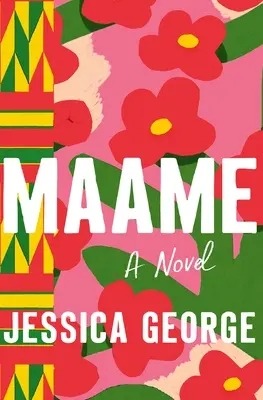
View On WordPress
#book#book review#british#caregiving#contemporary#ghana#ghanaian-british#grief#jessica george#london#loss of a parent#maame#parkinson&039;s disease#Review
0 notes
Text

You couldn't pay me to be in my twenties again.
This novel did a good job of portraying a girl in her twenties, her familial responsibilities at a young age, her necessary independence but with a sheltered upbringing, and all the heartbreak and naivete and being lost that would come with all of that.
I felt sorry for Maddie a lot of the time, on top of having to take care of her sick father, she also has to deal with all the nonsense of being a new adult, working a thankless job, trying to be in relationships, trying to maintain friendships, all while having no clue where to begin. And I was very glad to see, bit by bit, how she was starting to take charge of her life and face the darker and sadder parts of it so she can begin coming out on the other side.
Very clear and sparse writing in a novel that feels honest and true to what it's trying to tell.
P.S I scrome when she met S. Iykyk
1 note
·
View note
Text
Ghanaian-British Entrepreneur Develops Game-Changing Translation Earbuds
Ghanaian-British Entrepreneur Develops Game-Changing Translation Earbuds
A Ghanaian-British entrepreneur created wireless earbuds that can instantly translate 40 languages. Andrew Osei-Bonsu, who was inspired by his own travels and experiences attempting to communicate with people in diverse nations, developed the earbuds known as “Timekettle M2.” Artificial intelligence is used in the Timekettle M2 earbuds to provide real-time speech translation. They support…

View On WordPress
0 notes
Text
The United Kingdom has returned 32 gold and silver treasures stolen from the Asante Kingdom more than 150 years ago in what is today’s Ghana on a six-year loan, Ghanaian negotiators have said. The artefacts, comprising 15 items from the British Museum and 17 from the Victoria and Albert Museum (V&A), were looted from the court of the Asante king during the turbulent 19th-century clashes between the British and the Asante people. Ghanaian authorities have for years tried to reclaim gold treasures looted by British soldiers from the Asante kingdom, which is also known as Ashanti.
Continue Reading.
483 notes
·
View notes
Text
Riordanverse race/nationality headcanons (Main characters and background characters alike)
This may be a very long post, and I’m throwing in little tidbits about appearances, so with no regard to any particular order, strap in:
(Seriously, this is a huge post)
Edit: Changed Luke from just Korean American to mixed Argentinian/Korean American, inspired by @tagthescullion
The Seven (Including Nico and Reyna):
Percy Jackson: Biracial White/Latino, Cuban American (Sally was born in Havana, she had Percy shortly after moving to the US)
Annabeth Chase: Biracial Black/White, Irish/African American (with Swedish, Ghanaian and Polish descent)
Jason (And Thalia, by extension) Grace: White German American (Beryl moved from Germany to the US)
Piper McLean: Native American, Cherokee
Leo Valdez: Latino, Mexican, Born in Texas
Hazel Levesque: Black, African American, New Orleans (1940's French Creole)
Frank Zhang: Chinese Canadian, Vancouver
Nico Di Angelo: White, Italian with Russian descent, 1920’s Venice
Reyna Avila Ramirez Arellano: Latina, Puerto Rican
Camp Half Blood:
Will Solace: Biracial White/Bangladeshi American, Texas
Luke Castellan: Mixed Argentinian/Korean American (Born in the US, May (or Mi-Hee) grew up in a Argentine Korean community in Buenos Aires before she moved to the US and met Hermes)
Malcolm Pace: White with albinism, Scottish, Glasgow
Travis and Connor Stoll: Mixed Scottish and Laotian, Edinburgh (Source: @freddie-77-ao3)(I think in the TV show, they cast two Asian boys as the Stolls, so I've made them Asian)
Alice Miyazawa: Japanese American, Los Angeles
Julia Feingold: White Luxembourger, Luxembourg City
Cecil Markowitz: White Austrian/Northern Irish (Born in Graz, grew up in Belfast since he was two, has dual citizenship)
Katie Gardener: White Scottish, Aberfoyle
Castor and Pollux Vintner: Black, Irish (Pollux is Albino, Castor wasn’t), Donegal
Michael Yew: Mixed Irish and Chinese, Limerick (Granny moved from China)
Lee Fletcher: White Irish, Donegal
Clarisse La Rue: Mixed French/Pakistani American, Arizona (Mother moved from France)
Chris Rodriguez: Afro-Latino, Nicaraguan (Moved to the states when he was seven, lived in the same neighbourhood as Clarisse)
Silena Beauregard: Blasian, African American and Filipino, Mississippi (French descent)
Charles Beckendorf: Black, African American
Jake Mason: White American, Wyoming
Harley Smythe-Davidson: Biracial White/Aboriginal Australian (Source: @freddie-77-ao3)
Nyssa Barrera: Latina, Panamanian, Panama City
Shane O’Doherty: White Irish, Laois
Christopher Chalkevas: White Greek/English (Born in Larissa, moved with his mother to Hackney, London at age five, has dual citizenship)
Clovis Karlsen: Wasian, Welsh (Welsh/Norwegian grandad, Indonesian granny, Source: @ashthenerdtheythem)
Chiara Benvenuti: White Italian, Florence
Alabaster C. Torrington: British Indian, English, Westminster
Lou Ellen Blackstone: Black with vitiligo, British Ghanaian, Birmingham
Drew Tanaka: Japanese American, New York City
Valentina Diaz: Latina, Colombia
Mitchell Singh-Donovan: Mixed Indian and Irish, Cork
Lacy Alfsen: White Danish, Copenhagen
Ethan Nakamura: Japanese, Tokyo
Damien White: White Irish, Northside Dublin
Miranda Gardiner: Vietnamese American, Massachusetts (Distant Irish ancestry)
Billie Ng: Wasian, Irish/Thai Canadian, Toronto (She grew up in Longford till she was seven, then she and her mortal dad moved to Canada)
Sherman Yang: Chinese American, Alaska
Marcus (Mark) Dooley-Wallace: White Irish American, Georgia
Ellis Wakefield: Black, Algerian
Holly and Laurel Victor: Sri Lankan American, Seattle
Meg McCaffery: Wasian, Irish/Vietnamese American
Camp Jupiter:
Dakota Cheshire: Black, Bermudian
Gwendolyn Nunez: Hispanic, Spanish American
Bobby Herrera: Latin American, New Mexico
Lavinia Asimov: White Russian, born in San Francisco
Larry Schumacher: White American, North Carolina
Leila Grunfeld: White American, Colorado
This has been a very exhausting post to make lmao. I gave some of the characters who don’t have canonical surnames my own Hcs for their surnames. Also, I am yet to read through trials of Apollo, so maybe I’ll come later back to add more Roman names to the list.
Tagging my moots that I like to see their opinions for this (as well as the ones I tagged within the list as well):
@aki-bara @ravingcoffeeaddict @ebony-reine-vibes @squiggle3worm @sleep-needer
#percy jackson#annabeth chase#jason grace#piper mclean#leo valdez#hazel levesque#frank zhang#nico di angelo#reyna avila ramirez arellano#will solace#luke castellan#malcolm pace#travis and connor stoll#alice miyazawa#julia feingold#cecil markowitz#katie gardner#castor and pollux#michael yew#lee fletcher#clarisse la rue#chris rodriguez#damien white#silena beauregard#charles beckendorf#pjo#hoo#toa#riordanverse#misc skeptic thoughts
111 notes
·
View notes
Note
Irish Eda and Lilith
Irish Eda and Lilith
Mexican Raine
Finnish Alador
Ghanaian Darius
Dominican Luz and Camila
Korean Willow
American/Finnish Amity
British/American Hunter
78 notes
·
View notes
Text
Twst Ethnicity and Race Hcs (this is just my head cannons along with my friends so do not take this as cannon or in any way serious)
If by any chance this seems offensive, then i am willing to take this down but for now enjoy the head cannons me AND my friend have made!! Riddle: British Trey: British Cater: American Ace: Filipino, Irish and Mexican (mixed)
Deuce: Korean-American Leona: Ghanaian Jack: Creole Ruggie: Brazilian Azul: Italian Jade: (mixed) Russian and Chinese Floyd: (mixed) Russian and Chinese Kalim: Saudi Arabian Jamil: Saudi Arabian Vil: German Epel: American Rook: French born in South Africa Idia: Greek and Japanese Ortho: Greek and Japanese Malleus: Romanian Silver: German Romanian Sebek: Dutch Lilia: Romanian
So yeah here are me and my friends head cannons now if this does end up being offensive please just tell me nicely and i'll take this post down but also remember that these are just my head cannons and these are NOT cannon at all but are rather is something i thought of for fun and possibly for future head cannons
#twisted wonderland#twst#heartsabyul#savanaclaw#octavinelle#scarabia#pomefiore#ignihyde#diasomnia#twst headcanons
27 notes
·
View notes
Text
harry potter takes place in britain and then theres little to no poc okayyy .. anyways heres my main poc hcs !! ^_^
pakistani james / potter family (culturally hindu) (fleamont was born & raised in britain while euphemias family is from pakistan & punjabi and she moved when she married him, her full name is euphemia yasam paracha)
puerto-rican lily / evans family (not exactly white ?)
pakistani-puerto rican harry (hindu, but practiced secretly @ the dursleys as theyre catholics) (bear with me)
black hermione / granger family (specifically ghanaian father & somali mother, culturally muslim but not religious) (her and her parents were born in britan)
mexican-irish ron / weasley family (irish weasleys & mexican prewetts, molly is a second generation immigrant and grew up around british wizardry. her parents immigrated to britain when they got married as young adults) (white but i felt like sharing this)
iranian pansy / parkinson family (of iranian descent)
blaise zabini is canonically black of 'italian' descent but specifically i hc him as shona (zimbabwe) of sardinian descent (both him and his mother were born in britain) (sardinia is part of italy but sardinians are a different ethnicity if youre wondering y i put 'italian' in quotes)
wasian sev / snape family (british father & vietnamese mother) kay thx these r the main ones
#harry potter#marauders#marauders era#james potter#lily evans#jily#hp#petunia evans#hermione granger#ron weasley#transmasc ron weasley#thats important to me !!#weasley family#pansy parkinson#pansyluna#js leaving that here#blaise zabini#severus snape#ok silly
36 notes
·
View notes
Text

Why do African Americans have British names?
Just as European immigrants' names would later be changed by officials at Ellis Island, Africans brought to the U.S. as slaves were generally stripped of their names and given the surname of their oppressor. These were often English names but could also be from other European countries.

A century-and-a-half after the end of slavery and I’m still identifying with the name of the slave-owner who once owned my family. That’s my house. Their house. That sucks. That’s a bone deep pain, one hidden and held in the letters of my last name. And after I posted my response tweet to Ava, that pain of slavery got me thinking of one question.
What if Black Americans ditched our slaves names? What if we cut that psychic chain that binds us to slavery in name and deed?

Malcolm X: “During slavery, the same slave master who owned us put his last name on us to denote that we were his property. So when you see a negro today who’s named Johnson, if you go back in his history you will find that his grandfather, or one of his forefathers, was owned by a white man who was named Johnson. If his name was Bunch, his grandfather was owned by a white man that was named Bunch.”
Interviewer: “I get your point. Would you mind telling me what your father’s name was?”
Malcolm X: “My father didn’t know his last name. My father got his last name from his grandfather, and his grandfather got it from his grandfather, who got it from the slave master. The real names of our people were destroyed during slavery.”
Think about that. No, for real. Think about that. If you aren’t black, you may have never considered what it means to walk around carrying the mark of your family’s slave master. If you think about it too much and too deeply and it’ll fuck you up. That’s probably why many, if not most, Black Americans never think about it. Not really. It’s just too dark and too visceral and too real to consciously remember that every day when you put your name on something you’re extending the reach of your former slave master.
Every time a black athlete is celebrated––unless it’s someone supremely woke like Muhammad Ali or Kareem Abdul-Jabbar or even Metta World Peace, who consciously changed their name to suit themselves––that world famous athlete makes their family’s former slave master more famous. Same for every black CEO, every actress or actor, every black politician, and every black activist. When their name shows up in the press they honor and extend their family’s former slave master’s memory. That’s fucked up. Which is why Muhammad Ali said this of his birth name:
“Cassius Clay is a slave name. I didn’t choose it and I don’t want it. I am Muhammad Ali, a free name — it means beloved of God, and I insist people use it when people speak to me.”

Most white people in America have never considered what it means to walk around with the name of the family that once owned your family. Just imagine if all Black America changed their names on the same day.

The name Taraji is a unisex name of Swahili origin that means "hope" and "faith". It's commonly used in Eastern African cultures, especially among Swahili-speaking communities. The name is passed down through generations and is celebrated globally.

The name Ashanti has multiple meanings, including "gratitude," "thank you," and "warlike":
Gratitude: The name Ashanti is a girl's name of Ghanaian origin that means "gratitude".
Thank you: The name Ashanti is derived from the Swahili word asante, which means "thank you".
Warlike: The name Ashanti is also said to mean "warlike".

Meaning of Afẹ́ni
One who loves another.

The name Chiwetel means "God brings" in Igbo.

The name "Olubowale" is a combination of the Yoruba names "Olú" and "wale" and could mean "My God/Lord has come home":
OlúA popular name among the Yoruba ethnic group, "Olú" is a diminutive of "Olúwa" and can mean "God," "deity," or "lord". In some parts of Nigeria, Benin, and Togo, the word "Olú" is even used as a royal or noble title.
WaleThe name "wale" is associated with the Yoruba people, who primarily live in southwestern Nigeria and parts of Benin and Togo.

#african#afrakan#kemetic dreams#africans#brownskin#brown skin#afrakans#african culture#african names#slave name#Malcolm x#wale#togo#olubowale#olu#chiwetel ejiofor
17 notes
·
View notes
Text

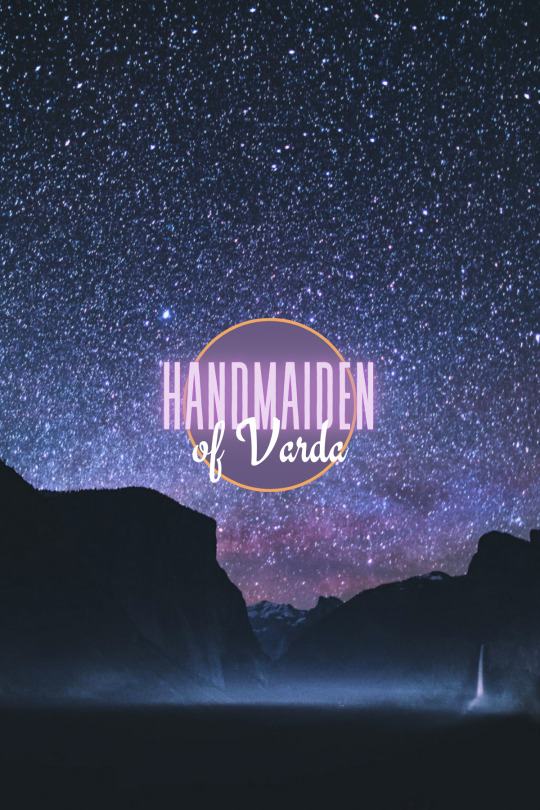

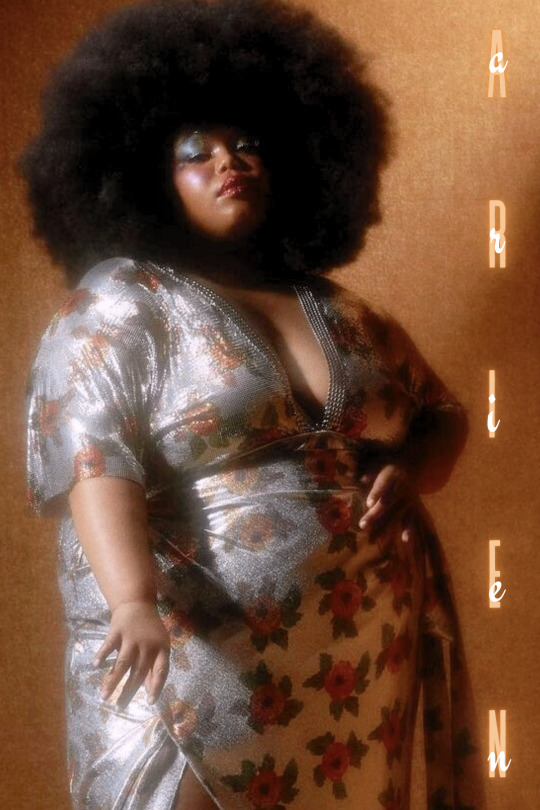
"Above all shadows rides the Sun and stars for ever dwell: I will not say the Day is done, nor bid the Stars farewell." - J.R.R. Tolkien, The Return of the King, "The Tower of Cirith Ungol"
[ID: an edit comprised of four posters. The top two are in shades of purple and blue, while the ones on the bottom are primarily orange.
1: Kripali Samdariya, an indian model with brown skin and long dark hair that falls down her back. She is dressed in a blue and silvery white wrap patterned with stars and crescent moons, and wears long silver earrings with clear jewels that touch her shoulders. Her hands are folded at her chest and her skin is dusted with silver. Vertical text on the left side of the image reads "ilmarë" in glowing purple type overlaid with white cursive / 2: Craggy hills or cliffs silhouetted against a starry sky. Blue mist rises up from between them. Text reads "handmaiden of Varda" in the same combination of styles as Image 1, backed by a purple circle outlined in orange / 3: The sun rising or setting over the sea. Same format as Image 2, but the text is orange and white, and reads "helmswoman of the Sun" against an orange circle outlined in purple / 4: Enam Asiama, a ghanaian-british model with light brown skin and dark hair in a loose afro. She is plus-size and wears a glittery silver dress patterned with flowers. Same format as Image 1, but the text is orange and on the right, and reads "arien" //End ID]
#ilmarë#arien#lord of the rings#the silmarillion#silmedit#lotredit#tolkienedit#mepoc#tolkiensource#sourcetolkien#oneringnet#fantasyedit#litedit#maiar#ainur#the professor's world#posters#edits with the wild hunt#brought to you by me#fc: kripali samdariya#fc: enam asiama#described#experimenting with glow text ! vv scary..
48 notes
·
View notes
Text
Black Mirror’s Demon 79 and the Justification of Brown Feminine Rage (warning: spoilers)
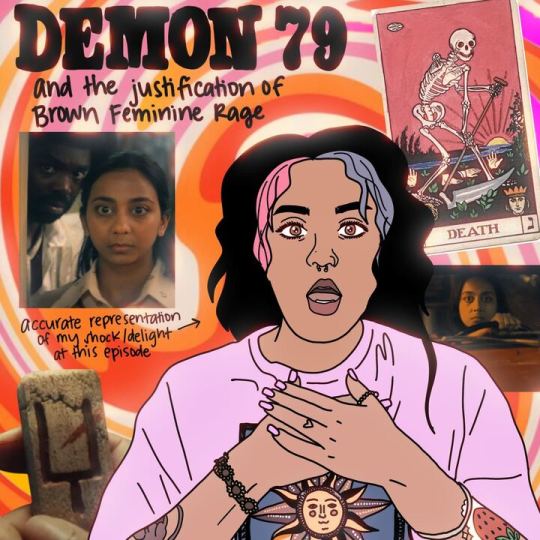
What if intrusive thoughts can be valid, and it is okay, maybe even necessary to act on them sometimes? If violence isn’t the answer, why must it so often be the question?
Set in Northern England, 1979, “Demon 79″ is the final episode of Black Mirror’s sixth season. It follows Nida, a meek sales assistant with a mousy appearance, who is tasked with the most complicated and important mission: to save the world by taking the lives of three human sacrifices in the days leading up to May Day.
Champions of the extended metaphor, Black Mirror employ the talents of Anjana Vasan (an Indian-born, Singaporean-raised, and U.K.-based actress) who plays Nida Huq and Paapa Essiedu (an English actor of Ghanaian descent) who plays Gaap*, the demon Nida accidentally invokes upon finding a talisman that begins this stressful mission of her. Gaap, devilishly handsome and charming, trying to earn his “wings” and be initiated into demonhood reassures the panicking Nida that she is not going mad, she is not a bad person, and the people she is encouraged to kill are vetted through his soul-reading as deserving of death.
*Gaap is considered through stories of demonology and texts related to the Testament of Solomon to be the Prince of Hell, with angels as siblings and a penchant for manipulating women and rendering them infertile.

Gaap adjusts his form to something more comfortable for Nida by changing into a look-a-like of Bobby Farrell from the famous disco-funk German-Caribbean vocal group known as Boney M. Having the representation of a demonic entity be a Black man while allowing him to manifest into a symbol of appeal for Nida turns the inherent vilification of Black men on its head without contributing to the hypersexualization of Black bodies. Gaap is never presented as a love interest for her, but viewers do get to see them develop a snarky back-and-forth. I almost never see Black and brown leads banter like this.
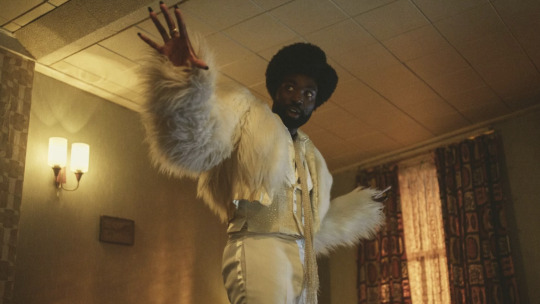
Another reason I’m glad Gaap was not portrayed as a sinful symbol of sexual desire is because Indian women already have to navigate a shame-fueled purity culture, and I wouldn’t want to see her grapple with her feelings for someone who is not only outside of her race and religion, but isn’t human. Writers avoided the idea that to love Gaap was to love something forbidden in all possible ways. And we don’t need to see Black folks depicted as not-human. The history of both American cinema and politics has acted on that dangerous perception already.
When I saw the opening scene of Nida with her wide eyes waking up to get ready for work, I recognized the doe-like innocence in her face as the one I have been raised to emulate. She looks so much like my mother 30 years ago. Minimal makeup, modest clothes, hair neat and tied back.
Moments of Nida’s inner demons being unleashed start off as fantasies she has. She is quietly scurrying through her life as an oppressed minority in 1970′s England, where xenophobia and racism showed up everywhere, from the actions of the British Nationalists to the microaggressions Nida faces at work for simply bringing her potent biryanis to the stock room and “stinking up the place”.
Indian women are some of the least visible in politics historically and presently because we are raised to not make a fuss of things, to be quiet and reserved and let white people act how they want towards us because we are guests in their countries, even when they’ve colonized and pillaged our own. I feel Nida’s pain as she thanks the white people around her for the bare minimum (allowing her an alternative place to eat, such as the basement - where she finds the talisman that changes her life) and avoids the confrontation and rage within her, even sighing in defeat at the NF* tag that has been spray-painted on her front door.
*NF stands for the National Front, a far-right, fascist political party in the United Kingdom, founded in 1967.
I crave catharsis for Nida. And for her late mother, whom she has a photo of in her apartment. She explains after the first sacrifice that her mother was perceived as crazy, and now Nida is afraid that people will think the same of her, and this time, because of what she’s done, it will be true. I wondered if Nida’s mom was called crazy because she had stood up for herself, reported abuse or harassment that was occurring within the Indian community itself or in her own home, or tried to leave Nida’s father. None of these scenarios would make the show seem like fiction at all, at least not for many of the South Asian women trapped by the chains of patriarchal ideals.
There are moments where I am concerned Nida is enamored by Michael Smart, a white politician giving a campaign speech outside the store she works at, as if his mere acknowledgment of her existence without visible disgust is enough to make her heart flutter. Again, I enjoy seeing a Black and brown lead in this episode, and knowing that other viewers are getting to see the many instances of white culture that exposes the racist ignorance and unfair power structures that exist in western society, workplaces, and even the homes of white folks themselves. (I was so happy for little Laura to hear of what was done to her assailant).
When it comes to stopping the world from absolute destruction in a nuclear holocaust, the heroes have never really been people who look like Nida. (It is worth noting that the head writer for this episode was Bisha K. Ali, who also is the executive writer for Disney+’s Ms. Marvel and has tackled many of the same representation issues in her work). People like her don’t have the permission to be loud, angry, or violent without consequences, no matter how justified. Meanwhile, with unchecked authority, bombs go off and innocent people die and children cower in their beds and white men get to act on their worst traits and impulses, however sinful, with little to no accountability.
Even when Nida is being violent, it is for the greater good. Because it has to be. Even female rage has to serve a purpose for others. It cannot just be hers. If she’s going to be angry, she better be trying to solve crime or save the world.
And through this most guttural and sometimes poisonous part of being a human, Gaap sees her. Maybe it’s because he has transformed in the image of Nida’s celebrity crush or maybe it’s truly the way in which he interacts with her, Gaap sees Nida. He recognizes the type of violence she would and would not indulge in. He tells her she should feel more at ease after killing the first sacrifice, a pedophile she clobbers with a brick before he falls into a river. He continuously recognizes her hesitation, and suggests “Dutch courage”, or booze before following through with the second kill. It is inappropriate in Indian culture for women to drink, which Nida notes when she tells Gaap she doesn’t. Then he asks her if she wants to, something, from the expression on Nida’s face, it doesn’t seem like she has ever been asked.
Upon entering a pub full of (yes, all white) men, Nida is dismissed by the (also white) female bartender who looks just as irritated by her existence as her coworker Vicky, who had reported how unfair it was that she had to smell Nida’s lunches and endure the lingering scent at work. An older (also white) bartender (who might be the owner) takes her order with the same polite and quiet discomfort of her boss, who had presented her with the basement lunch “solution” to appease Vicky. It’s subtle but the approaches in which different age groups and genders of white English folk take with engaging with Nida demonstrate the variety of ways in which people of colour experience discrimination. At its worst, it is violent hate crimes and unjust legislation that mutates into full blown genocide. At its mildest, it’s passive aggression and strained tolerance.
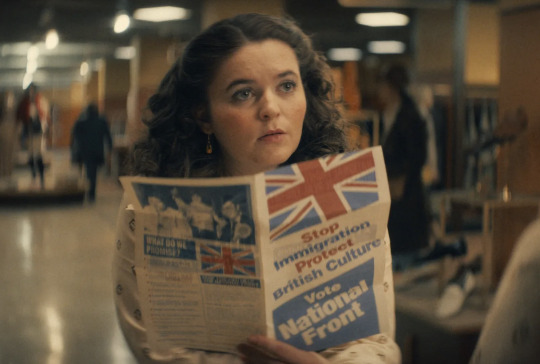
It’s more apparent with the second killing (of a man named Keith who killed his wife) that Nida does have the option to be as righteous as she wants to be, which is something I really appreciated about her character. Even if she was killing to prevent the literal apocalypse, and the clock was 6 minutes from midnight -- she must follow the cadence of at least one kill a day -- the moment she has to hear Keith’s justification for what he did and his attempt at absolving himself with the statement “I’m not a bad husband, but --” she swings a hammer at his head to shut him up. She then bashes his head in repeatedly, even to the point where Gaap is wincing at the sight. If this was just about killing people to stop a bigger disaster and loss of life, she wouldn’t be losing herself in the act like she did.
The third and final kill occurred in the next few minutes, as Keith’s roommate, witnesses her trying to exit, which presents itself as problem in allowing her to continue with the mission if she’s arrested. It’s messy because it was fast, the least premeditated, and she doesn’t know who the man is or if he’d done anything as bad as the previous two skills. Because of this, she’s much more apologetic as the man dies, later finding out from Gaap he was Keith’s brother, Chris, an “ordinary” person who would not have been one of Nida’s choices.
But as Gaap says, “What’s done is done”. And the three lines on the talisman should have disappeared indicating that Nida has fulfilled her duty. But it still has a line remaining, so a confused Gaap dials 666 (of course) on Nida’s rotary phone to explain the issue to his superiors. He tells Nida that Keith apparently didn’t count because he’s a murderer and anyone who’s been directly responsible for the death of another human being (not counting future deaths they might be responsible for) is off limits. Chris counted because his death still occurred just before midnight.
Nida doesn’t snap psychologically and decide she enjoys this and is going to become a serial killer, which is a direction I find common in other Black Mirror episodes, where the white and/or male character loses it and/or goes on a killing spree. She grapples once more with her initial unwillingness to participate in this because even when given the go-ahead and to have the most reason to, she enters a mental boxing ring with her instinct v. culture v. morals. From my own experience and what I have seen in my own community, outward expression of rage is never the first emotion a woman reaches for...because she can’t always afford to in the way others can.
“My whole life, I never wished harm on anyone.”
Gaap tells her what’s at risk for him, and he describes a fate of punishment that she says sounds like her life now. She stands, empathizing with an actual demon, and deciding to continue with the mission. Gaap also reminds her this isn’t solely for him; she possessed a darkness within her that drew her to the talisman. So, he asks her, who pissed her off?
To Possette’s Shoes they go.
Vicky, a prime choice for the grand finale, delegates the task of attending to the young girl Laura (from earlier) and her mother to Nida. Because the little girl creeps Vicky out. Gaap informs Nida that because she killed Laura’s dad, Laura doesn’t kill herself at 28 and instead goes to therapy, becomes a mother at 29, and a grandmother at 57. It’s a comforting thought amidst the mayhem of it all.
Michael Smart makes an appearance once more, as his father and the boss’s father, are old college friends, and Nida’s boss had promised him a suit and shoes on the house. The boss unsurprisingly selects Vicky as the sales attendant, with Gaap grumbling to himself as Nida’s eyes go from ‘excited crush’ to just crushed. Her boss then chooses to notice the boxes on the floor from when Vicky could’ve been cleaning up and hisses at Nida, “Could you pick up the bloody mess?” This prompts Gaap to suggest the boss be the next to go.
Nida moves on to cleaning up the boxes, eavesdropping on the conversation between Michael and Vicky. When Michael says he hopes he has her vote, she says she is siding with the National Front who she believes will help rid the town of all the pesky foreigners. And then Michael Smart reveals himself to be what a lot of politicians are: covert bigots. He explains to Vicky that an explicitly xenophobic campaign would be too polarizing, so you have to elect a moderate who can win over the masses and put the evil plans in motion. (Sound familiar?)
There is a subliminal language spoken among white supremacists, even if they smile politely at people who look like me and Nida. And this revelation that she witnesses presents an even more justifiable option for Nida’s third kill.
She asks Gaap to give her information about Michael’s future, which he hesitantly reveals to her. Michael Smart wins the election, eventually becomes prime minister, and leads a new world order built on white supremacy. Nida decides he is the final target, but Gaap tells her he wouldn’t be the right choice because the Satanic world he comes from is a fan of his work and everyone there would want Michael to be able to facilitate the upcoming deaths that occur as a result of him first winning the election to become a member of Parliament.
But Nida is set on him, or no one, giving Gaap the ultimatum to get on board or risk his own banishment after failing his initiation.
Meanwhile, a police investigation occurs which leads to the bar staff identifying Nida as a “muttering Indian woman” who was at the bar the night Keith died. Len Fisher of Tipley Police arrives at Nida’s apartment, as part of routine questioning, and she invites him in, with Gaap’s suggestion to kill him.
Fisher is the first white person to speak to her as person, too, even though he’s there on the premise of Nida being a potential suspect. Maybe this is more covert trust-building behaviour, maybe as a cop, maybe as someone generally suspicious of people of colour. He is the most mild-mannered, middle-man in the whole story.
Fisher follows Nida who follows Smart after his speech at town hall. This is where I’m a little surprised but not displeased. The other episodes end with something sad, violent, and/or redemptive. Nida gets a bit of everything, but as with all things Black Mirror, not in the way you’d expect. In society, Nida may be reduced to a mad woman telling an insensible story, enduring the same perception people had of her mother. But society doesn’t last long, and she walks off into a kind of nuclear, fiery sunset with a new friend.
The deadline for the sacrifices had been May Day, also known as Workers’ Day or International Workers’ Day to commemorate the struggles and gains made by workers and the labour movement. Nida, representing intersectional identities of the working class (immigrants, women, people of colour), was not listened to or believed, and the world ended because of it. Her weapon of choice had been a hammer, a tool meant for building that was used for destructive but necessary purposes. This could be a reference to the Communist party’s symbol of a hammer and sickle, which represents proletarian solidarity. The meaning of the episode, particularly its ending, captures the significance of the working class and how our world relies on them to function and last. When their efforts are stunted, their sacrifices are in vain, or they are not heard, the world ends.
#black mirror#demon 79#tv series review#black mirror season 6#paapa essiedu#digital illustration#fanart#commissions open#anjana vasan
278 notes
·
View notes
Text
Should all African governments, chiefs, and kings request the return of their traditional artifacts and precious antiques to their respective countries? 👑 King Otumfuo Nana Osei Tutu II arrives in London to give a speech about Asante culture and heritage, highlighting the British Museum’s return of Ghanaian heritage.
23 notes
·
View notes